On 16 September 2025, the annual event commemorating Georgiy Gongadze Day took place on Kontraktova Square in Kyiv. This year marks exactly 25 years since the journalist, founder of Ukrayinska Pravda and public figure was kidnapped and murdered.
The event kicked off Gongadze Remembrance Week, during which a street exhibition entitled ‘The Diary of Georgiy Gongadze’ was presented on Kontraktova Square. It is a series of Georgiy’s iconic quotes with explanations of the context and illustrations by Ukrainian artists Inga Levy and Anton Logov. The full version of the event can be viewed on the award’s YouTube channel. The exhibition ‘The Diary of Georgiy Gongadze’ can be viewed until 22 September in Kyiv on Kontraktova Square, in Lviv on Rynok Square and in Odesa in the City Garden.
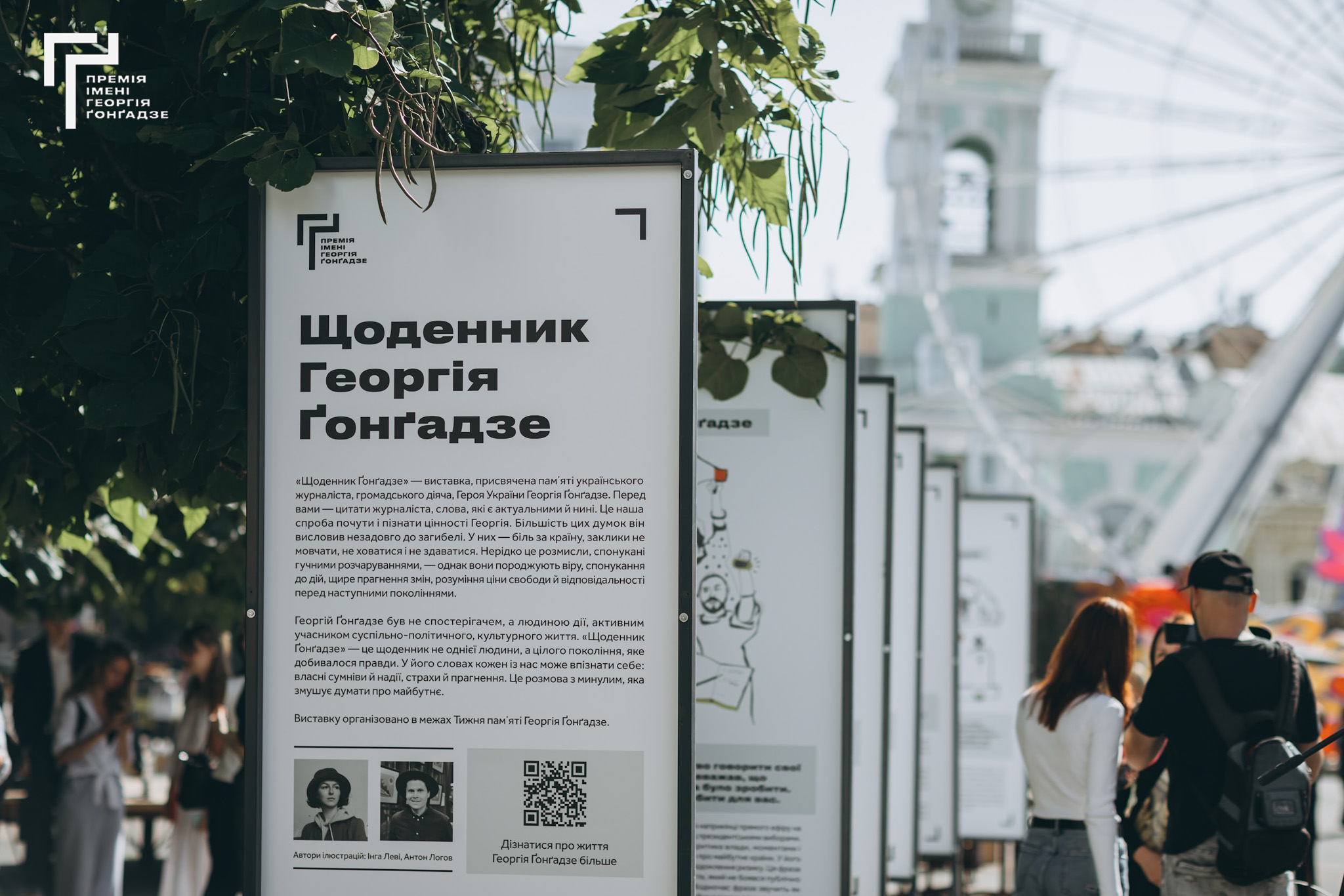
The event began with words of gratitude to all those who came to the memorial service, spoken by Georgiy’s wife, a member of the supervisory board of the Georgiy Gongadze Award, a public figure, journalist, expert on international politics, member of the supervisory board of the Ukrainian Institute, senior advisor on Ukraine at the Institute for Government Effectiveness, a think tank in Washington, D.C.
She recalled how 25 years ago, a rally was held on Independence Square under the slogan ‘Find journalist Gongadze, the authorities must be held accountable for their actions’: “Twenty-five years ago, not on this square, but on Independence Square, we began the campaign to find Georgiy. That was when Ukrainian society woke up, when large Ukrainian protests began, leading to more than one Ukrainian revolution… Ukrainian society is still fighting today. Because this struggle, this power of citizens, was born then in the pursuit of justice… And this pursuit of justice stirred and built a new Ukrainian reality.”
At the same time, Myroslava Gongadze emphasised that the demand for justice in Ukraine has not yet been satisfied, as there is no political will to bring the case to a conclusion: “The last court hearing in the Gongadze case took place in 2021, and in July 2021, the last perpetrator of this horrific crime, General Pukach, who personally killed Georgiy with his own hands, was punished. Unfortunately, the organisers of this crime have not been punished, and it is unlikely that this will happen… There is no political will to bring this case to a conclusion… But, in my opinion, Ukraine will be a just state when crimes are punished, when corruption ends, and when people who stand up for the truth feel their power.”
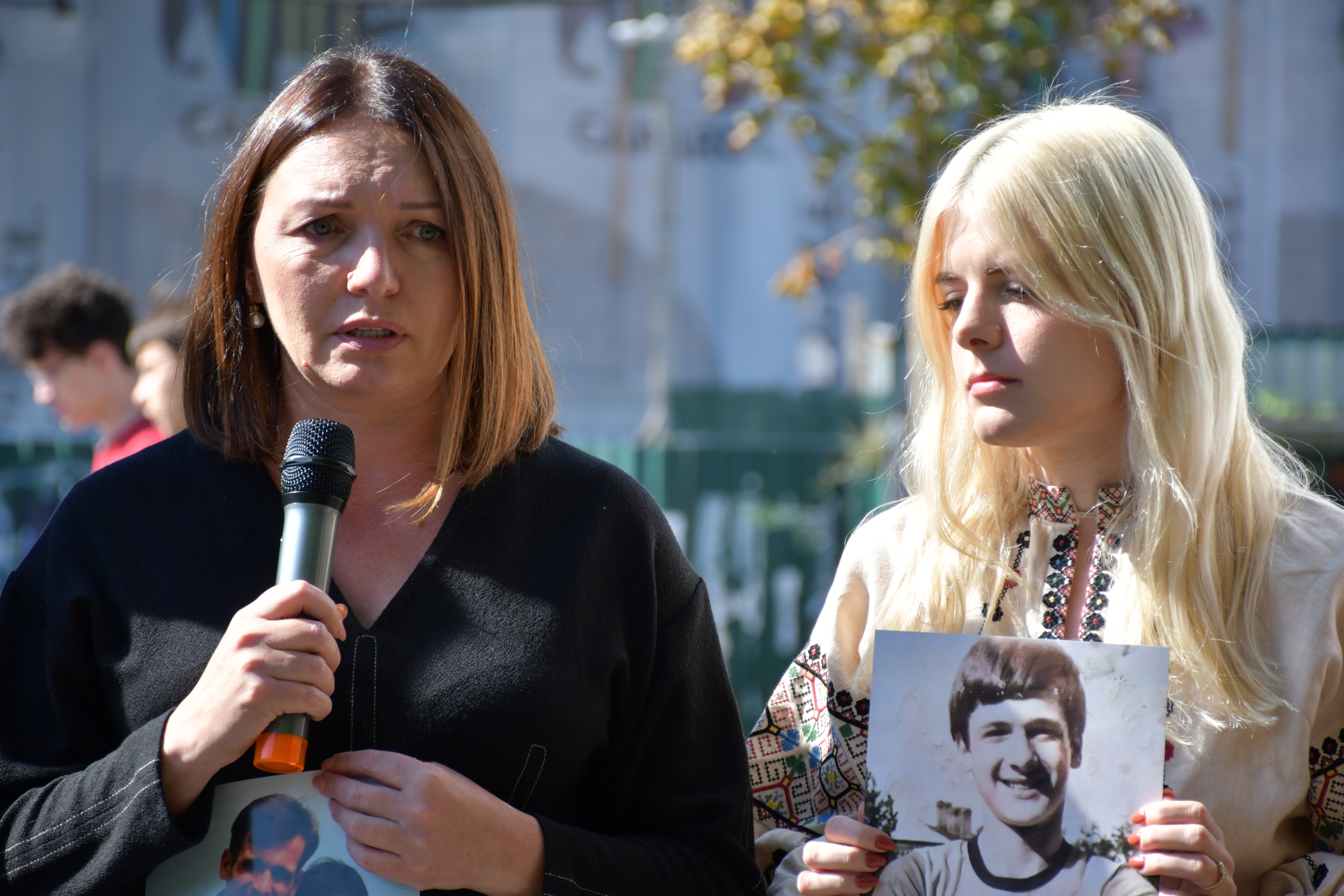 Myroslava and Solomiya Gongadze
Myroslava and Solomiya Gongadze
Journalist and documentary filmmaker Ivan Lyubish-Kirday, who won this year’s Georgiy Gongadze Award, admitted in his speech that it was Gongadze’s story that confirmed his choice of profession: “When he was kidnapped, I had just enrolled in the journalism department. But it was he who confirmed that I was on the right path. I want to wish myself to reach the level that Gia was at with my actions and my life.”
Lubysh-Kirday emphasised that in the context of Russian aggression, journalism remains a dangerous profession, but even now it is a weapon in the fight for freedom: “Being a journalist is very dangerous now, especially with a neighbour like Russia. But I am more than convinced that victory will be ours.”
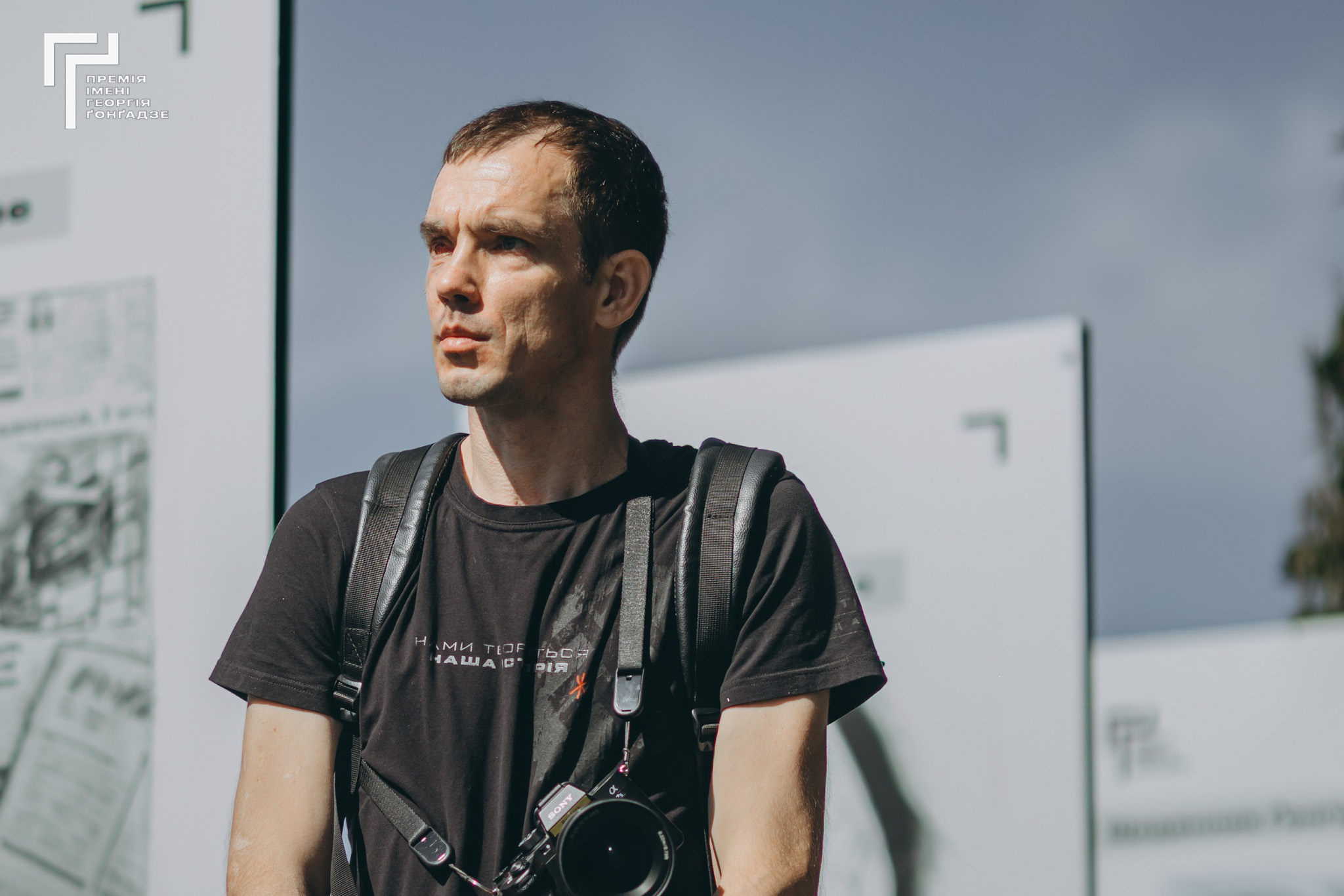 Ivan Lyubish-Kirday
Ivan Lyubish-Kirday
Tetyana Teren, chair of the Gongadze Prize supervisory board, noted that the tragedy 25 years ago was the starting point for change in the country: “That terrible and tragic moment 25 years ago started a series of tectonic changes in our country. And at the beginning of these changes was Georgiy.”
She recalled that it was the initiative of the award, together with the ZMINA Human Rights Centre and the Institute of Mass Information, that revived the annual commemorative events on 16 September.
“Despite the fact that the current generation of journalists may only know about Georgiy from textbooks, we have not stopped gathering. This testifies to the value of his personality and contribution to our profession and country,” Teren emphasised.
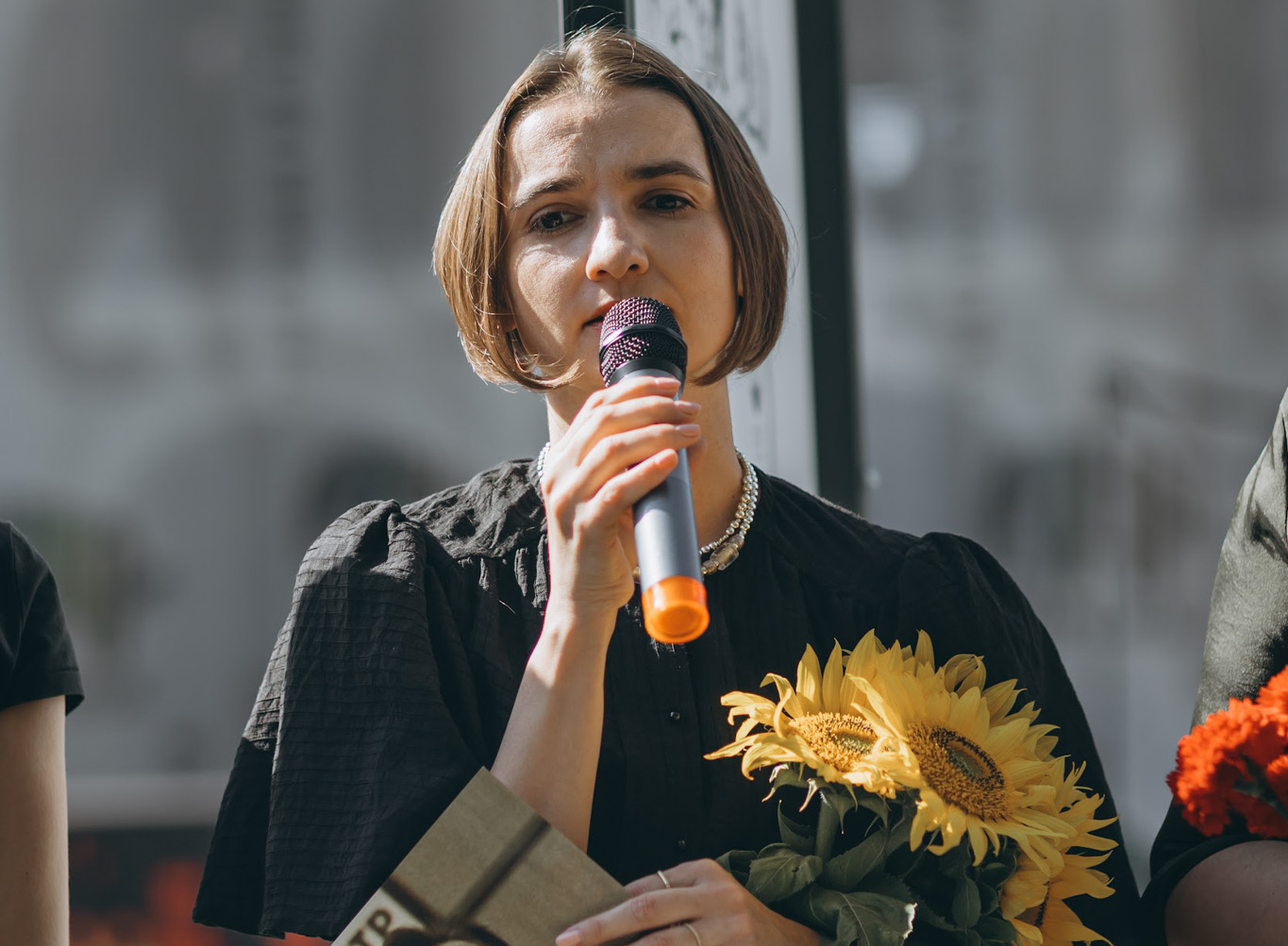 Tetiana Teren
Tetiana Teren
Sevgil Musaeva, editor-in-chief of Ukrayinska Pravda, talked about how a small project turned into one of the main platforms for Ukrainian journalism and why it is important to appreciate creators now, not just after a tragedy: “I would like to start by saying that the number 16 is also significant for me in this story, because it was on 16 April 2000 that Hii founded Ukrayinska Pravda, and six months later he was kidnapped and then killed. I was 13 when it happened. Of course, I did not have the opportunity to know Heorhiy personally, so as editor-in-chief, I had to piece together his portrait from fragments of memories of those who knew him. What struck me most was that literally the day before Georgiy was kidnapped, he said that he did not want to be a revolutionary, that he was a talented person who wanted to fulfil his potential in this country, that he wanted to live a normal life. But it so happened in his life that he became a revolutionary after he ceased to exist physically.
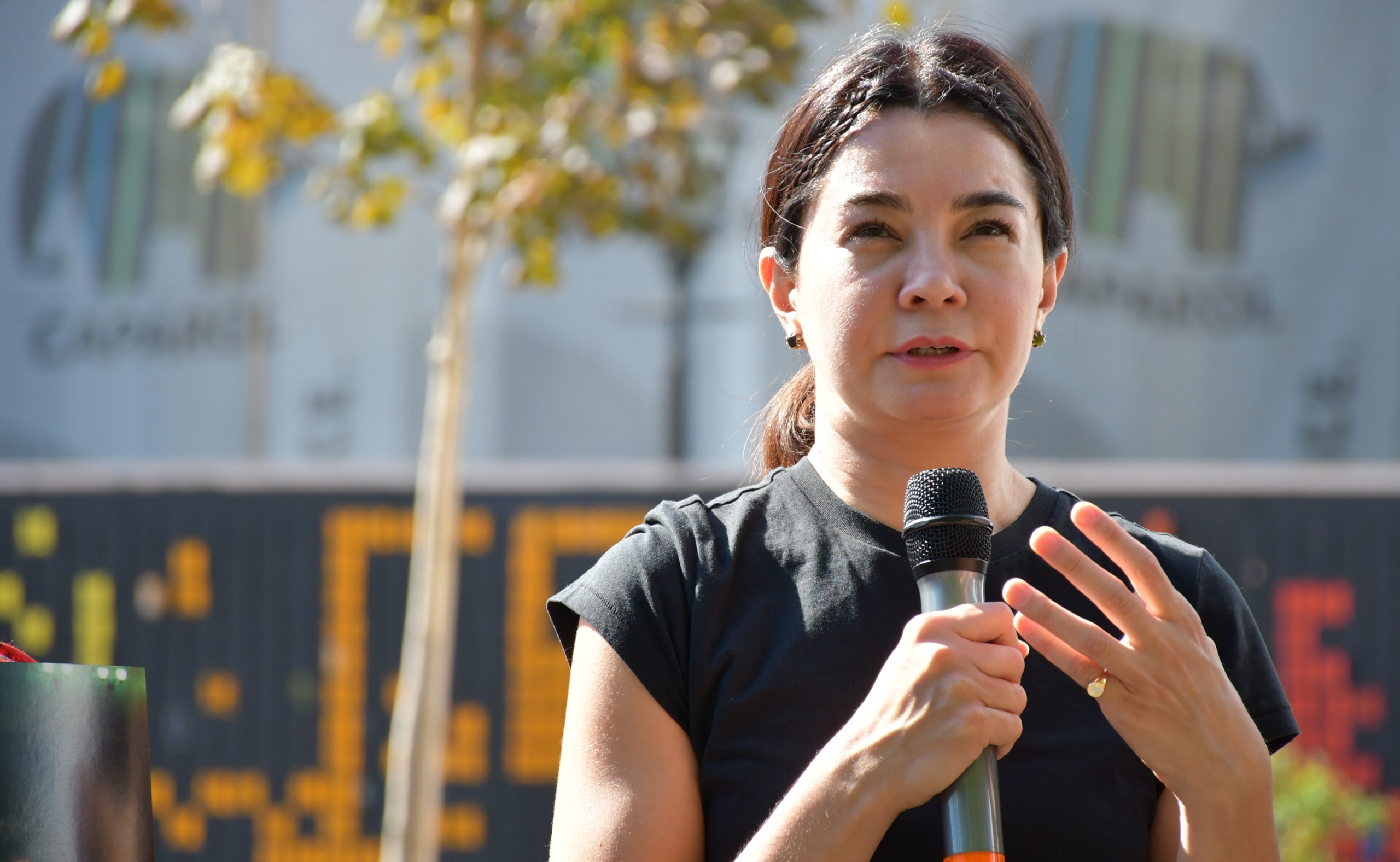 Sevgil Musaeva
Sevgil Musaeva
Sevgil called on everyone to remember all media workers who have died, including those killed in the war, and to learn to appreciate contemporary activists and journalists while they are still alive: “I dream that talented people in this country will have the opportunity to live the life that Georgiy dreamed of and wanted for himself. That they can fulfil their potential and be appreciated during their lifetime. Appreciate people while they are alive. Appreciate their talent and passion, support them, and don’t remain silent when they need help. This is also very important.”
Human rights activist and project manager at the ZMINA Human Rights Centre, Viktoria Nesterenko, reminded us that the memory of those who have died is inextricably linked to the memory of those who are still in captivity: “Today, on such a memorable day for us human rights activists, it is an opportunity to remember those journalists who are still in captivity or are political prisoners. These are professional journalists, media representatives, and citizen journalists who were formed, in particular, in the occupied territory of Crimea and who, in essence, gave either their lives or their freedom for having the courage to continue working under occupation, documenting crimes against Ukrainian citizens committed by the Russian Federation.”
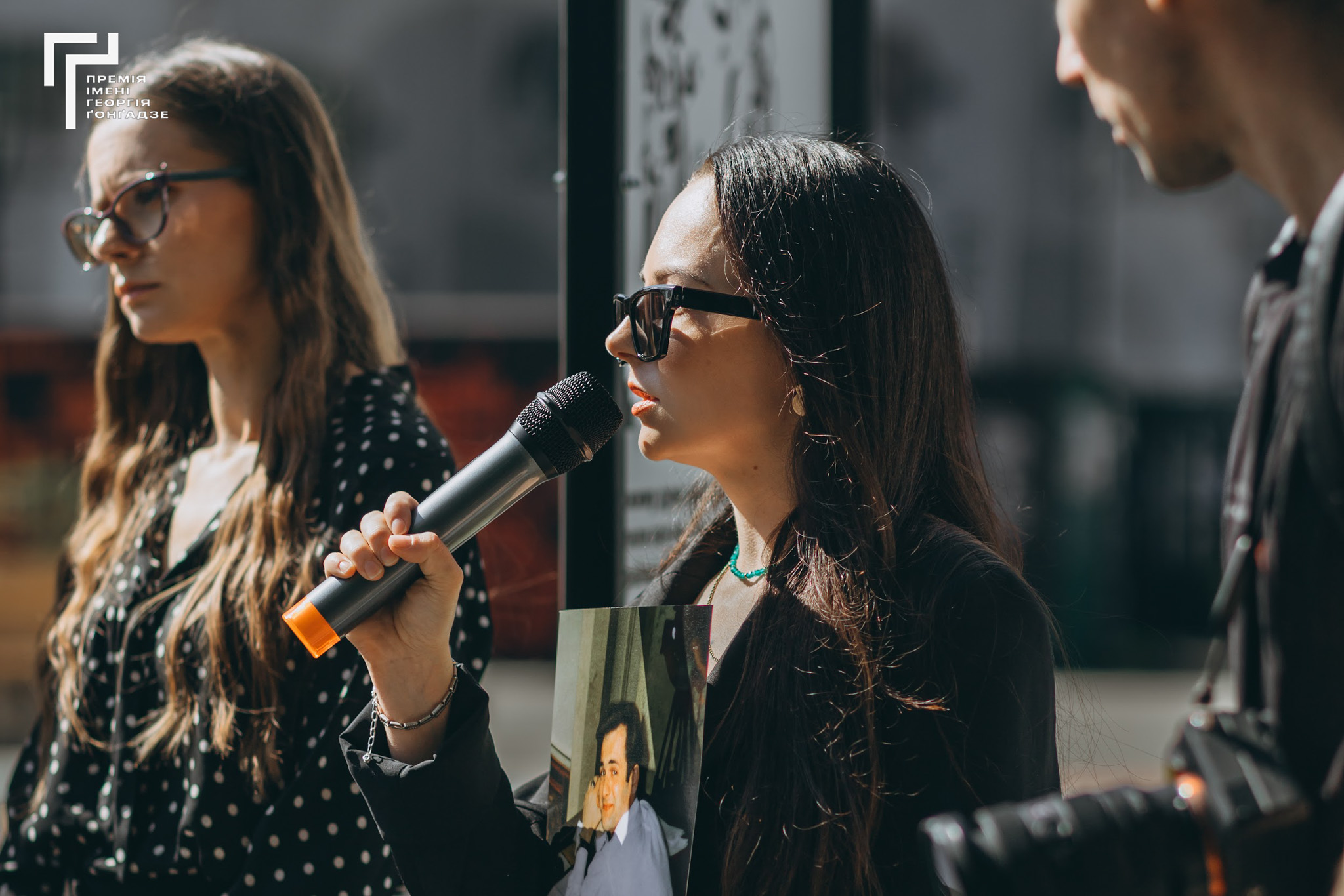 Victoria Nesterenko
Victoria Nesterenko
The human rights activist noted that as of today, 26 journalists are in prison, having been illegally convicted on fabricated charges of ‘terrorism, extremism’ or other serious crimes.
Victoria expressed her hope that all media workers would be released and appealed to those present to support the Kremlin’s political prisoners and their families: “I really hope that all journalists will be released. We are working hard on this, we are constantly covering the news, especially about those political prisoners who are in terrible conditions in occupied Crimea and the newly occupied territories and who have been deported to Russia to serve illegal sentences. Therefore, I want to call on everyone to support political prisoners, including journalists and their families, and to call on our authorities to advocate for their return.”
Anastasia Abramets, director of the Georgiy Gongadze Award, spoke about the role of the award and the commemorative events marking the anniversary of his disappearance: “Friends, colleagues, partners, your presence here today means to us that journalists are united and stand in solidarity. And only by being united and showing solidarity can we stand together and continue on the path that Georgiy paid so dearly for. Thanks to your support and involvement, we can carry out the projects implemented by the award and continue the work for which Georgiy gave his life.”
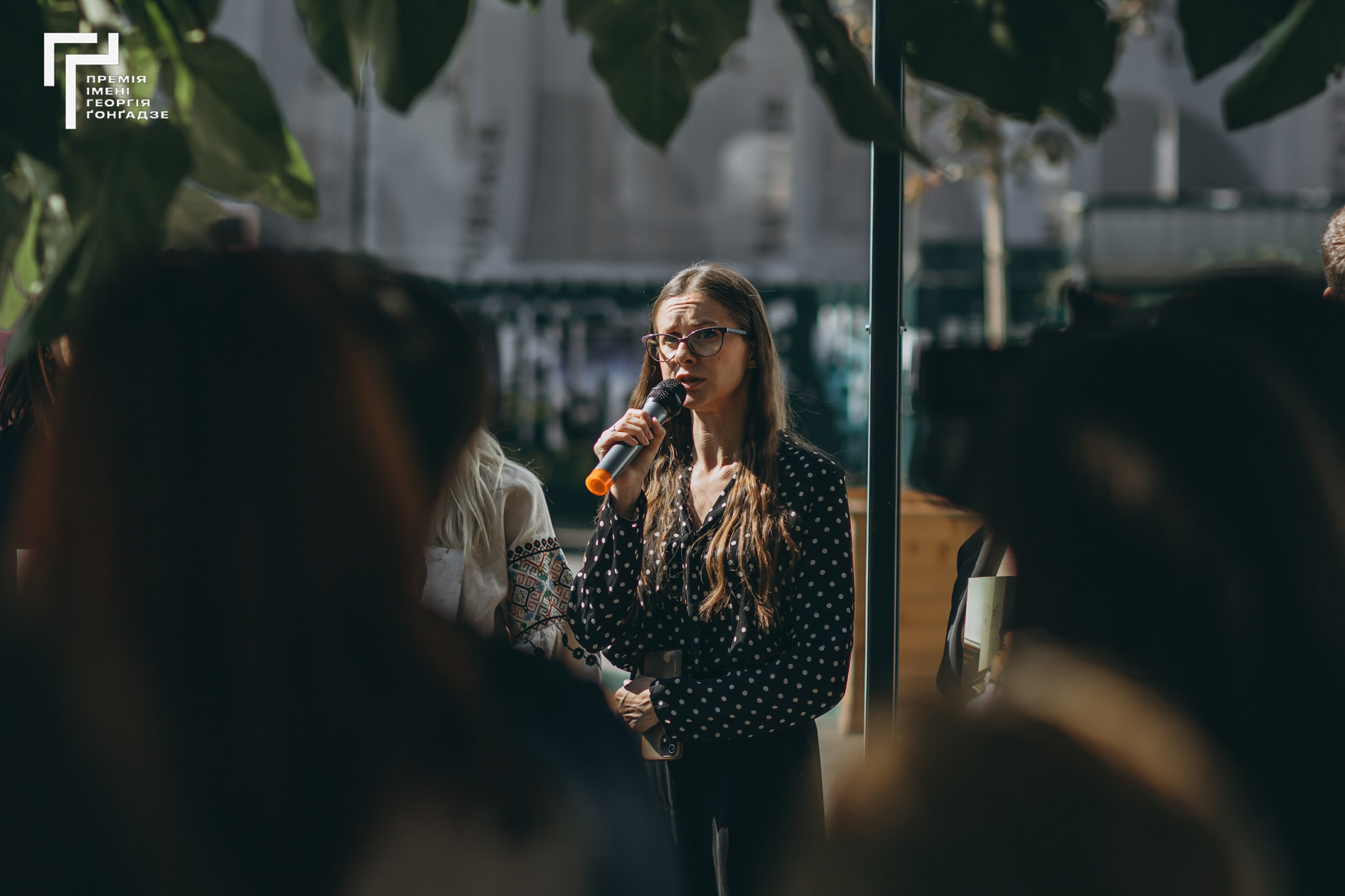 Anastasia Abramets
Anastasia Abramets
Oksana Romaniuk, director of the Institute of Mass Information, recalled how, as a student, she first saw a campaign demanding an investigation into Gongadze’s disappearance: “In the lobby of UNIAN, where I had asked to work, there were posters with a black silhouette and the words: ‘Where is journalist Gongadze? It made a huge impression on me.”
According to her, it was Gongadze who started the tradition of journalistic solidarity, which today keeps the professional community together even during the war: “Today, we also remember our colleagues who died after 24 February 2022. A total of 110 of our colleagues. Twelve of them were killed by Russia for their professional activities. But despite all the challenges, Ukrainian journalism is powerful, energetic and alive. And the foundation of this community is Georgiy.”
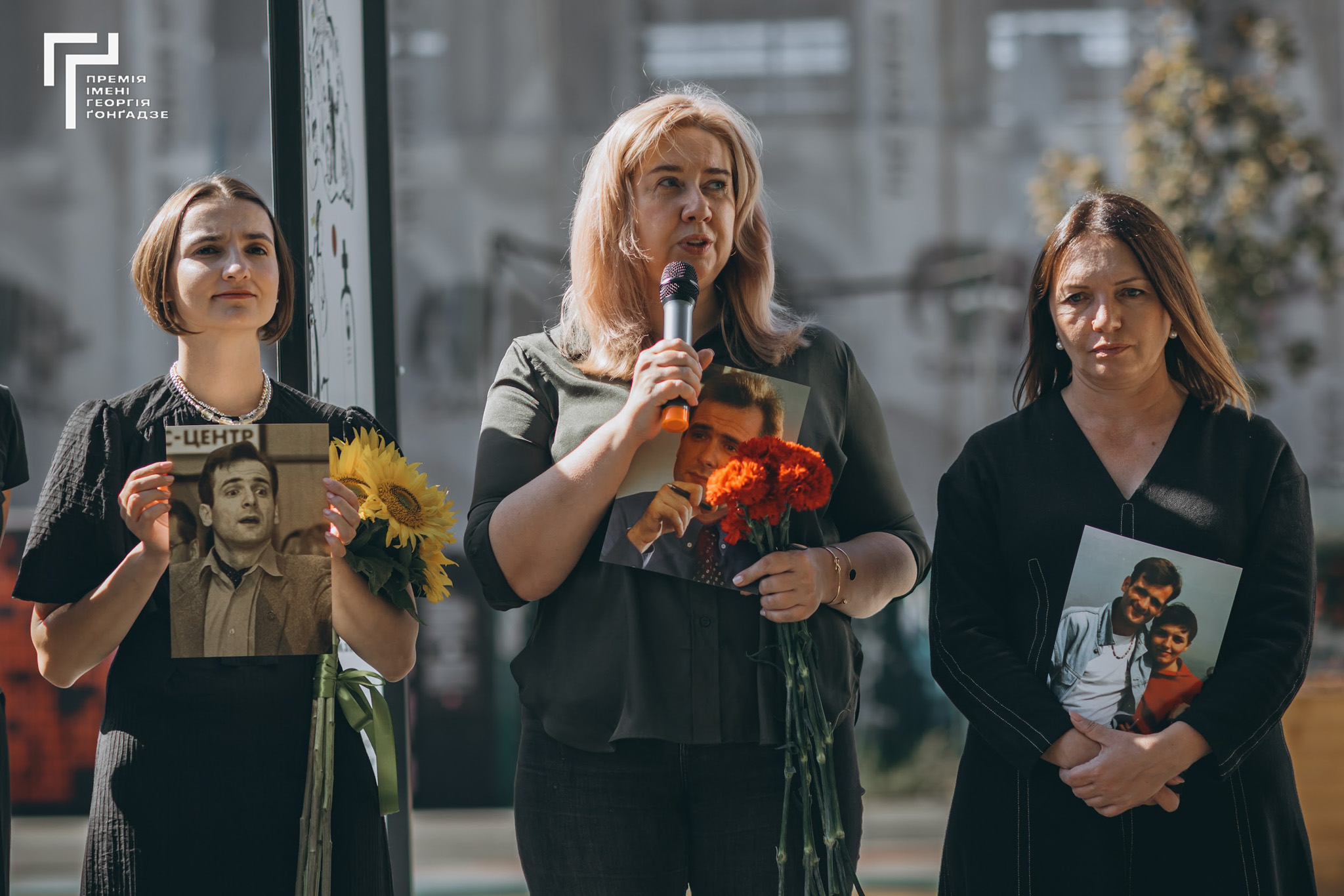 Tetiana Teren, Oksana Romaniuk, Myroslava Gongadze
Tetiana Teren, Oksana Romaniuk, Myroslava Gongadze
Writer and human rights activist Larysa Denysenko reminded us that the name of Ukraine’s second president, Leonid Kuchma, remains at the centre of public suspicion regarding possible involvement in the crime, but Ukrainians have yet to receive a definitive answer: “The organisers and instigators have not been punished. Public suspicion has focused and continues to focus on the then president. This is a wound that will not heal until the truth is established and recognised at the state level.”
Finally, she emphasised the importance of not only remembering, but also taking action.
“We must continue the work of Georgiy and all our colleagues who were killed by Russia or who gave their lives for freedom. Memory is not just flowers and portraits, it is a responsibility to the profession and society,” Denisenko noted, adding that the Gongadze case is a reminder that without justice, it is impossible to build either a state governed by the rule of law or democracy: “We must not only honour the memory, but also demand justice. Otherwise, the consequences of impunity will be passed down from generation to generation.”
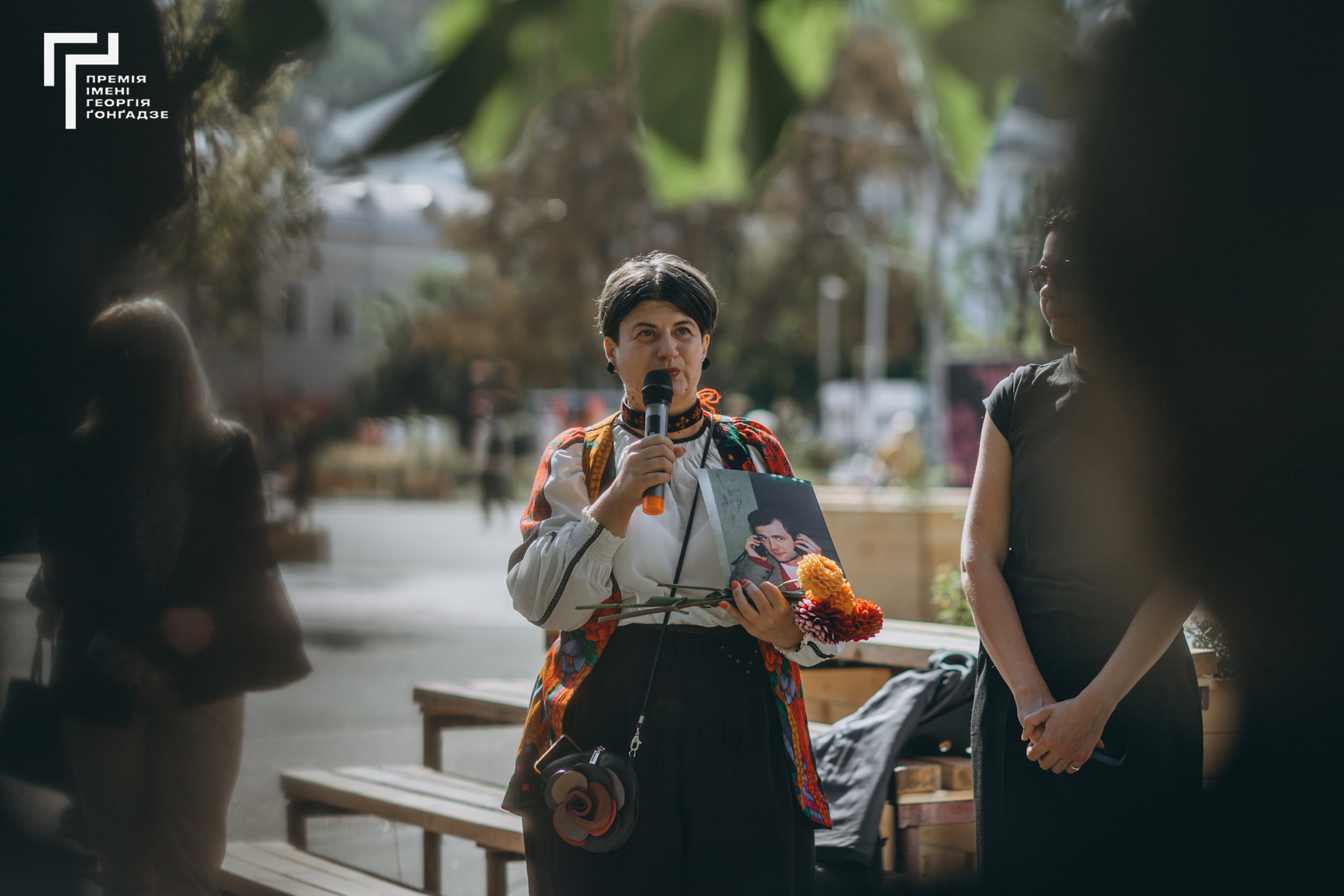
Larysa Denysenko
The week of remembrance for Georgiy Gongadze will last until 22 September.
A series of meetings entitled ‘Professional Dialogues’ will be held in various cities. In particular, a conversation with Tetyana Troshchynska, editor-in-chief of Hromadske Radio and winner of the 2024 award, will take place in Lviv, and in Kyiv, meetings with Myroslava Gongadze (17 September, Kyiv-Mohyla Business School) and Olga Rudenko, editor-in-chief of Kyiv Independent (19 September, Mariupol State University campus, conference room).
The week will also feature a memorial lesson for schoolchildren to help the younger generation understand the story of Georgiy Gongadze and the dangers faced by journalists.
In addition, the Gongadze Award team announced the creation of an online museum dedicated to the journalist, which will collect his texts, materials, and memories of friends and colleagues. If you have something to share or any ideas, please write to: gongadzeprize@gmail.com.
The detailed programme is available here: https://zmina.ua/announcements/25-rokiv-bez-georgiya-gongadze-programa-tyzhnya-pamyati/.
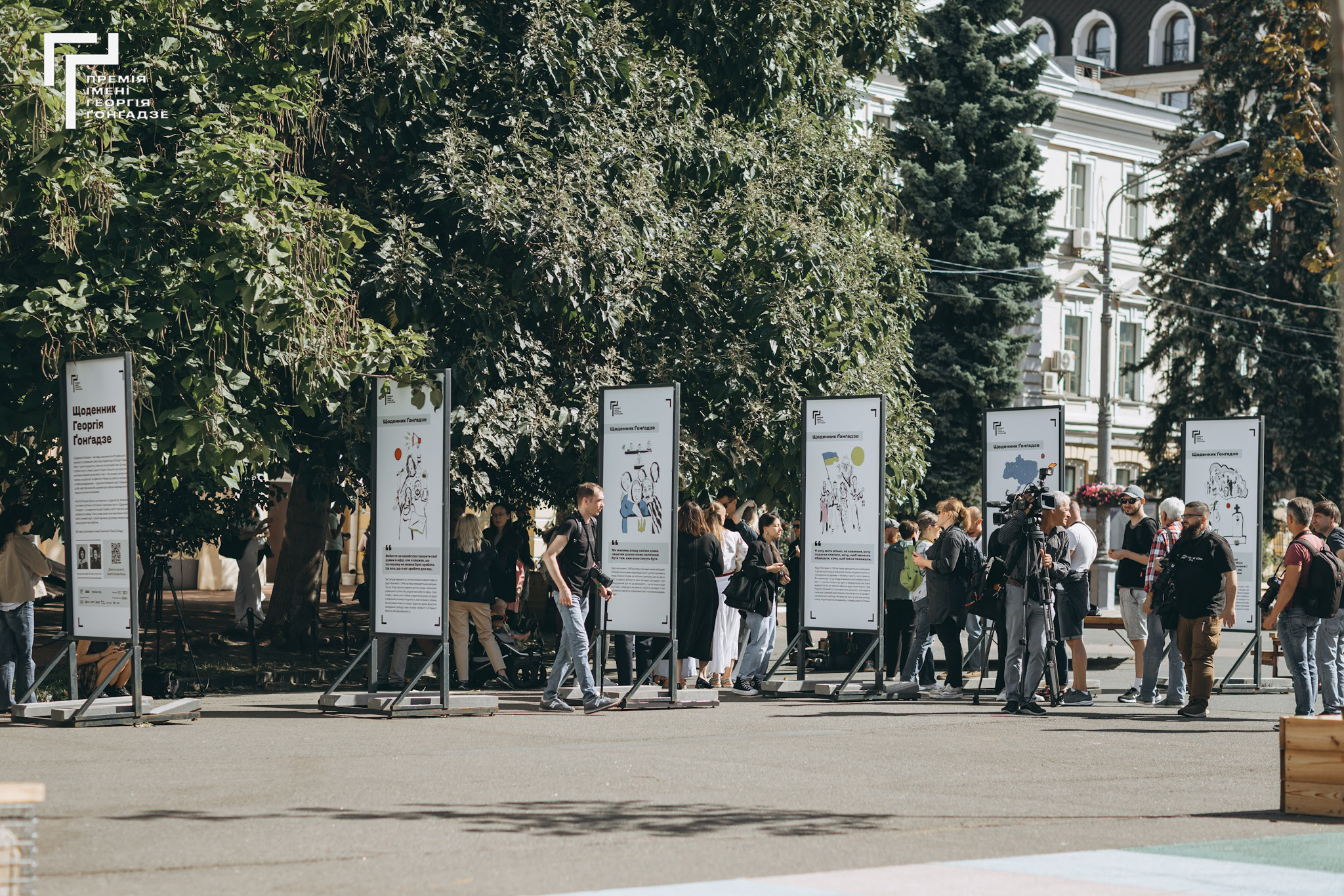
The week of remembrance was organised with the support of the International Renaissance Foundation and the Taiwan Foundation for Democracy.
Information partners of the event: Ukrainian PEN, Ukrainska Pravda, the family of Georgiy Gongadze, Kyiv-Mohyla Business School, Institute of Mass Information, Channel 5, Suspilne, Radio Svoboda, Detector Media, ZMINA Human Rights Centre, Lviv Media Forum. As well as ZAXID.NET in Lviv and More Lyudey, Most, and Intent in Odesa.
Organisational partners in Kyiv — Kyiv-Mohyla Business School, National University of Kyiv-Mohyla Academy, Mariupol State University, National Memorial Complex of the Heroes of the Heavenly Hundred — Museum of the Revolution of Dignity; Organisational partners in Lviv: Ukrainian Catholic University, UCU School of Journalism and Communications, Lviv City Council. Organisational partners in Odesa: NGO “Vyshyvanka Festival” and America House.
The Gongadze Prize was established in 2019 by Ukrainian PEN, the family of Georgiy Gongadze, the publication Ukrainska Pravda, Kyiv-Mohyla Business School, and its alumni.
The Gongadze Award continues to exist and develop thanks to the support of patrons. The patrons are exclusively graduates of the Kyiv-Mohyla Business School who support the values of the award and strive to change Ukrainian society through high-quality professional journalism.
Source: ZMINA

